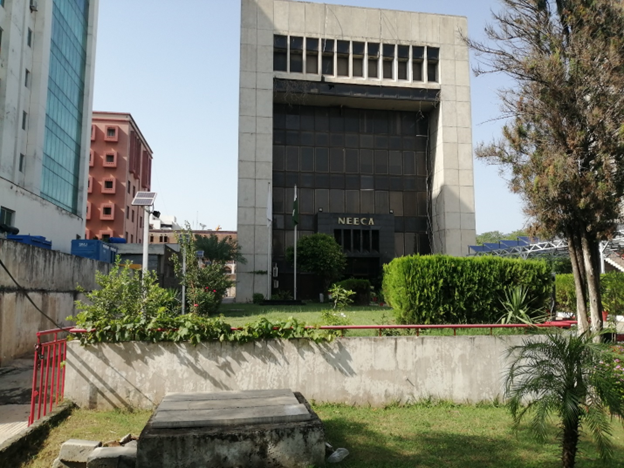Supporting the construction transition to promote energy efficiency in buildings in Pakistan
Construction transition to promote energy efficiency in buildings in Pakistan (CONSTRUCTION TRANSITION) - Transformation of the building environment towards greater energy efficiency
-
Commissioning Party
German Federal Ministry for Economic Cooperation and Development (BMZ)
-
Country
-
Lead executing agency
More
-
Overall term
2022 to 2024
-
Products and expertise
Environment and climate change

Context
Pakistan has the highest urbanisation rate in Asia, which means that more people are moving from rural to urban areas than anywhere else on the continent. Almost 40 per cent of Pakistan’s 240 million inhabitants now live in urban areas. This rapid urban growth means that 700,000 new homes are needed every year, although only about half of this number are actually being built. Current estimates suggest a shortage of ten million homes.
At the same time, almost 40 per cent of greenhouse gas emissions released during energy production worldwide are attributable to the construction and usage of buildings. In addition to the construction process, the production, transportation and subsequent disposal of building materials also require a considerable amount of energy.
Objective
Pakistan is taking its first steps towards a more energy-efficient and environmentally friendly construction industry.

Approach
The project supports the Pakistani Government and private-sector actors in the construction industry in introducing an ecological transformation in the construction industry. It promotes environmentally friendly solutions that protect the climate and environment and use resources efficiently. Examples include measures to improve material and energy efficiency in the production of building materials and on building sites, the promotion of a longer service life of buildings and the renovation of existing building to improve energy efficiency.
The project operates in the following three areas:
- Expertise is provided to support the government and relevant authorities in integrating guidelines for environmentally sound building construction into policy and legal/regulatory documents.
- Political and private sector actors are given access to evidence-based data that facilitates energy-efficient and environmentally sound construction.
- Support is provided to a pilot project that demonstrates the measures and feasibility of environmentally conscious construction and can thus trigger change in the construction industry.
Last update: October 2023





